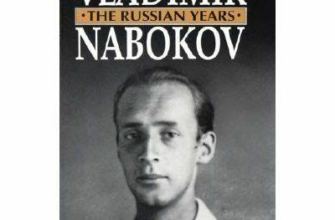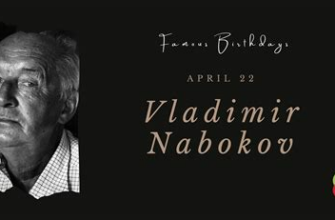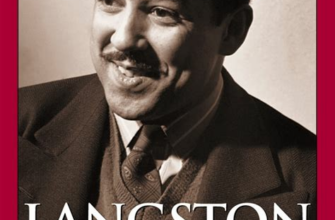In the realm of literature, there are only a handful of individuals who possess the remarkable ability to transport readers into a world of imagination and intellect. One such luminary, whose name evokes admiration and admiration, is Anthony Burgess. Known for his profound literary contributions and unparalleled creative prowess, this enigmatic wordsmith crafts narratives that captivate the mind and stir the soul, leaving an indelible mark on the literary landscape.
Delving into the pages of Anthony Burgess's biography unveils a tapestry of experiences and influences that shaped his extraordinary literary journey. From his humble beginnings, Burgess navigated a path of passion and determination, honing his craft through a seemingly insatiable hunger for knowledge and self-expression. His voracious appetite for literature, music, and linguistics imbued his work with a depth and richness that transcends the boundaries of conventional storytelling.
Embracing the sonic tapestry of words, Burgess crafted symphonies of prose that resonated with readers across the globe. His unyielding experimentation with language and structure made his writing a vivid and dynamic experience, challenging traditional norms and redefining the boundaries of literary expression. Through his exceptional ability to blend genres and create distinct voices for his characters, Burgess breathed life into his narratives, leaving an indelible imprint on the minds and hearts of his readers.
The profound impact of Anthony Burgess's literary genius extends far beyond his craft. He used his pen as a tool to explore and challenge the intricacies of human nature and societal constructs. Mining the depths of moral ambiguity and philosophical questions, Burgess's works serve as a mirror that reflects the complexities and contradictions of the human condition. With an unflinching gaze, he fearlessly tackled themes ranging from violence and identity to the nature of evil and the power of language.
Early Life and Influences: A Glimpse into the Formative Years of a Literary Visionary

Delving into the intriguing realm of Anthony Burgess's early life unravels a rich tapestry of experiences that shaped his literary prowess. During his formative years, an array of diverse influences came together to mold Burgess's unique perspective, fueling the foundation of his creative genius. Exploring his childhood and adolescence provides invaluable insight into the manifold factors that fueled his literary journey.
The Early Years in Manchester: Nurturing Literary Roots
Delve into the formative years of an exceptional wordsmith, Anthony Burgess, as we explore the vibrant city of Manchester that shaped his early life and laid the foundation for his literary journey.
In this section, we will uncover the significant literary influences that played a pivotal role in molding Burgess's creative genius. From his encounters with classic works of literature to his interactions with renowned authors, we will navigate the literary landscape that shaped the mind of this literary luminary.
- Exploring the Streets of Manchester: A Melting Pot of Inspiration
- Nurturing a Love for Words: The Early Educational Experience
- Early Literary Heroes: The Influences of Great Writers
- Local Libraries and Literary Societies: Expanding Horizons
- Manchester's Cultural Scene: Theatre, Music, and Art
By delving into the formative years of Anthony Burgess in the bustling city of Manchester, we uncover the rich tapestry of experiences and influences that contributed to the development of his literary prowess. Join us as we embark on a journey through time and delve into the world that cultivated Burgess's creative spirit.
The Impact of Burgess's Military Service during World War II

Burgess's time in the British Army during World War II greatly influenced his life and creative work, leaving an indelible mark on his literary career. His experiences in the military provided him with a unique perspective and a profound understanding of the human condition in the face of conflict and adversity.
During his service, Burgess witnessed the horrors of war, the cruelty of combat, and the fragile nature of life. These experiences served as a catalyst for his exploration of themes such as morality, violence, identity, and the complexities of human nature. Through his writing, Burgess delved into the psychological and emotional consequences of war, capturing its impact on individuals and society as a whole.
Through his military service, Burgess cultivated a deep sense of empathy and compassion for the soldiers and civilians affected by war. This empathy is evident in his portrayal of characters who grapple with the aftermath of conflict, showcasing the complexities of their struggles and the lasting scars left by war.
Burgess's wartime experiences also provided him with a rich cultural and linguistic knowledge, as his travels and encounters with people from diverse backgrounds broadened his understanding of the world. This global perspective permeates his writing, adding depth and authenticity to his narratives.
In conclusion, Burgess's time in the British Army during World War II played a significant role in shaping his literary genius. It fueled his exploration of universal themes and provided him with a profound understanding of the human condition. The impact of his military service is evident throughout his work, making it an integral part of his legacy.
Unveiling Burgess's Multifaceted Career: Novelist, Critic, and Composer
In this section, we explore the diverse range of talents and accomplishments that marked Anthony Burgess's illustrious career. While known primarily as a renowned novelist, Burgess's creative genius extended far beyond the realm of fiction. He seamlessly transitioned between the roles of a perceptive critic and a celebrated composer, leaving an indelible mark on multiple artistic disciplines.
As a novelist, Burgess's literary talents knew no bounds. His works displayed a remarkable depth of imagination and a keen awareness of societal issues, tackling themes with both thought-provoking insight and an irreverent wit. Through his writing, Burgess crafted intricate narratives that explored the complexities of human nature, often delving into the darkest corners of the human psyche. His distinctive style and command over language earned him critical acclaim and a dedicated readership.
In addition to his prowess as a novelist, Burgess demonstrated a deep understanding of literature as a critic. His incisive analyses and thoughtful commentary offered unique perspectives on a wide range of literary works. With a discerning eye, he dissected the nuances of prose and poetry, unraveling the layers of meaning that lay beneath the surface. Burgess's contributions as a critic enriched the literary world, providing valuable insights into the craft and artistry of writing.
However, Burgess's creativity did not stop at the written word. He also found success as a composer, further demonstrating his multifaceted talents. His musical compositions encompassed a variety of styles and genres, reflecting his eclectic taste and innovative spirit. With a deep appreciation for classical music and a fondness for experimentation, Burgess fused different elements to create harmonious and captivating melodies. His compositions showcased his ability to evoke emotions and transport listeners to new realms of auditory experience.
Unfailingly dedicated to his craft, Burgess's multifaceted career exemplifies the boundless possibilities of artistic expression. As a novelist, critic, and composer, he challenged conventional boundaries and reshaped the landscape of literature, criticism, and music. His legacy serves as a testament to his indomitable spirit and unwavering commitment to the pursuit of creative excellence.
The Controversial Reception of "A Clockwork Orange" and Its Enduring Impact

Challenging conventions and sparking fervent debates, "A Clockwork Orange" left an indelible mark on both literature and popular culture.
Through its daring exploration of themes such as free will, violence, and the nature of humanity, Anthony Burgess's groundbreaking novel shocked readers and ignited a firestorm of controversy upon its publication.
At the heart of the controversy lies the protagonist, Alex, a charismatic yet deeply troubled young man who takes pleasure in acts of extreme violence. The novel raises thought-provoking questions about the possibility of redemption and the limits of societal control.
The controversial nature of "A Clockwork Orange" stems from its unflinching portrayal of Alex's brutal acts, which juxtapose with the vivid language and dark humor employed by Burgess.
Many critics condemned the novel as gratuitously violent, while others applauded its unapologetic depiction of a dystopian society. The book's reception intensified further with Stanley Kubrick's controversial film adaptation, which brought the story to a wider audience and sparked additional debates.
Regardless of the divided opinions it provoked, "A Clockwork Orange" has undeniably left a lasting legacy on literature, film, and societal discourse.
The themes and moral quandaries explored in the novel continue to be debated and analyzed, demonstrating Burgess's profound ability to incite thought, challenge norms, and provoke introspection. The enduring impact of "A Clockwork Orange" serves as a testament to Burgess's literary genius and his ability to push boundaries while maintaining an unmistakable artistic voice.
Burgess's exploration of language, morality, and dystopia in his literary works
Delving into the creative depths of one of literature's great minds, this section examines the profound themes that Anthony Burgess intricately weaves into his works. Language, morality, and dystopia emerge as prominent motifs, playing vital roles in conveying the complexities of human existence and society.
Through his masterful manipulation of language, Burgess explores the power it holds in shaping individuals and societies. He adeptly crafts unique linguistic landscapes, defying conventional boundaries to reveal the immense influence words can have on both personal identity and collective consciousness. With a linguistic prowess that knows no bounds, Burgess expertly incorporates various linguistic devices and techniques, immersing readers in rich and thought-provoking narratives.
Morality, another central pillar of Burgess's literary genius, takes on multifaceted dimensions within his works. He delves deep into the moral fabric of humanity, challenging conventional notions of right and wrong. Through his complex characters and intricate plotlines, Burgess fearlessly dissects the ethical dilemmas faced by individuals in societies plagued by moral ambiguity. With a keen eye for moral intricacies, he prompts readers to grapple with ethical quandaries and question the very foundations of their own belief systems.
Additionally, Burgess's works often venture into the realms of dystopia, offering glimpses of societies marred by nightmarish visions of the future. These dystopian landscapes serve as cautionary tales, presenting societies plagued by oppression, totalitarianism, and the loss of individual freedom. Drawing inspiration from historical events and societal trends, Burgess creates vivid and unsettling dystopias that serve as mirrors to our own world, compelling readers to reflect on the potential consequences of unchecked power and flawed social systems.
In conclusion, Burgess's exploration of language, morality, and dystopia in his literary works showcases his unparalleled ability to transcend traditional storytelling. Through his evocative language, probing examinations of morality, and haunting portrayals of dystopia, Burgess leaves an indelible mark on literature, provoking readers to contemplate existential questions, challenge societal norms, and delve into the depths of human nature.
FAQ
Who was Anthony Burgess?
Anthony Burgess was a British writer and composer, best known for his novel "A Clockwork Orange". He was born in 1917 in Manchester and passed away in 1993. Burgess wrote a wide range of novels, plays, and non-fiction throughout his career.
What are some of Anthony Burgess' most famous works?
Some of Anthony Burgess' most famous works include "A Clockwork Orange", "Earthly Powers", and "The Wanting Seed". "A Clockwork Orange" is especially well-known for its exploration of dystopian themes and the influence of language on society.
How did Anthony Burgess become a writer?
Anthony Burgess initially trained as a composer and taught music in schools. However, in the 1950s, he decided to pursue a career in writing to support his family. He wrote quickly and prolifically, eventually publishing over 30 novels and numerous other works.
What was Anthony Burgess' writing style like?
Anthony Burgess was known for his complex and imaginative writing style. He often incorporated historical, philosophical, and linguistic elements into his works. Burgess was also skilled at creating vivid and memorable characters, as well as utilizing dark humor and satire.
How did Anthony Burgess' personal experiences influence his writing?
Anthony Burgess drew heavily from his own life experiences in his writing. For example, his time serving in the British Army during World War II greatly influenced his novel "Earthly Powers". Additionally, his interest in language and linguistics, which developed due to his work as a language instructor, played a significant role in shaping his unique writing style.



